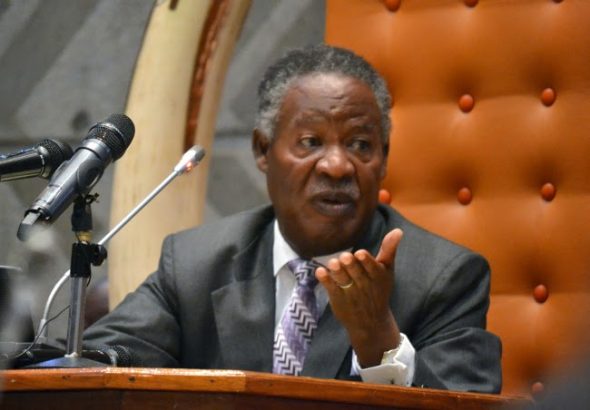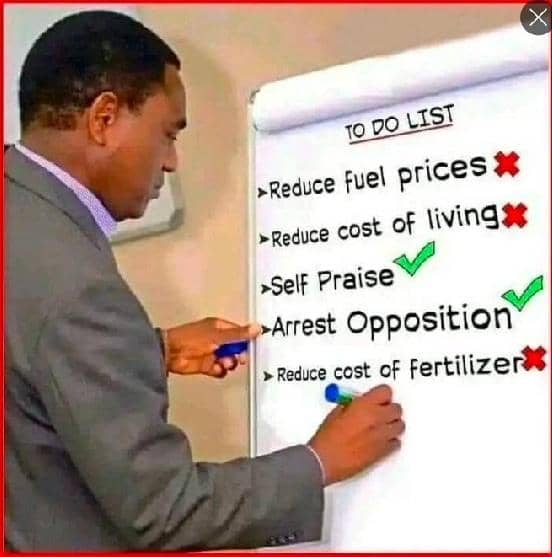
Plural politics, in Africa, was not introduced to promote development and good governance. It was a tool by our former colonial masters to put Africa in check.
By Mpandashalo Mwewa | Chief Editor.
Lusaka, May 19 – It’s blatantly clear that the opposition won’t acknowledge the achievements of President Hichilema and the same can be said about the lenses through which the ruling party wishes the public to look at the previous regime.
Both parties have failed to compete at a higher level of debating solutions to our various social economic development challenges. We can agree that it’s easier to pull each other down but sadly, you don’t make your candle shine any brighter by blowing off that of your opponent.
This adage was well witnessed yesterday during the President’s press briefing where he laboured to downplay the achievements of the previous regime much to the disappointment of the general public that was expecting him to address pertinent issues affecting the nation in a clear and concise manner.
The nation was expecting the new dawn administration’s policy direction on many issues of national importance to give hope that despite the current suffering, the future is bright, such as a proper direction on the current developments in the mining sector.
Alas! The address was turned into a self praise ceremony. I have always reminded our followers that politics should not be a self preservation tool but a vehicle for development. Certainly, President Hichilema’s stance does not reflect that.
The problem is not entirely President Hakainde Hichilema’s per se. He needs support between now and the 2026 General Elections but he is not seeing that, forcing him to explain himself beyond necessary lines. This is the failure of the current political system.
Supporting President Hichilema does not mean the nation becoming praise singers, praising him for doing the minimum he should do as Head of State.
We may not agree on a number of issues, but we must develop our nation by consensus through compromise. What is happening in our country’s political space is unacceptable where democracy has been reduced to voting alone.
Democracy, on the other hand, is anchored on the nation being able to consider all honest perspectives in order to reach the broadest possible consensus. It follows that, in order for the system to work, there should be no “political class,” rather everyone who is able needs to participate, not only by true representation in government, but even by activism.
Truth be told, multiparty democracy in Zambia stands opposed to the ideals of the opposition preaching a common political benefit by all citizens. And yet, governance in the 21st century yearns for diverse political parties thriving towards common principles of freedom, justice and solidarity, for different causes and different groupings of society.
Also Read: A look at Kateka’s article: Zambia in a crisis.
The main purpose of any political party is not to make its leader Head of State but to act as a social organisation with a representative function, embodying particular interests, aggregating and communicating them to institutions of governance. The role of a mature opposition is crucial to any form of multiparty democracy.
Instead of wishing the ruling party ill health, a mature opposition ought to hold the party in power accountable; it should serve as a watchdog ensuring it functions within the confines of the law, exposing the likes of corruption, nepotism and the abuse of power. It should pursue justice upon any deviation from the law or constitution.
But of great importance to the people, too, is the fact that it should serve as a credible alternative to the ruling party; this function is crucial because competition is healthy in ensuring better service delivery and preventing complacency by the ruling party. Even in Parliament, it ought to play varying roles, on behalf of its constituents, within policy, policy development and accounting for project implementation.
Having said that, it’s clear that the route that the opposition in Zambia has always taken of misinformation to derail government programmes is not even within the confines of modern multiparty democracy. It’s a fallacy that is anchored on serving the political interests of the party elite and not the interests of an ordinary child in rural Zambia.
For this reason, I have been of the view that what Zambia needs is a new governance system that must prioritise development over politics of patronage because democracy can be practiced in several other forms.
Plural politics, in Africa, was not introduced to promote development and good governance. It was a tool by our former colonial masters to put Africa in check. It has since lead to inefficient governments, endless power transitions and social chaos. It prioritizes the immediate needs of politicians and those of their international sponsors over those of a nation united with a purpose to develop.
Also Read: The dark side of the US coercive diplomacy.
The export of democracy by the West should be seen in the context of Tiananmen Square Protests in China. You may want to ask yourself a simple question, was the USA’s intention, then, to help develop China?
Western multiparty democracy in its current form, unless we miraculously change, will only manage to slow down economic development because it tends to prioritize the immediate needs of the political elite over those of a nation united with a purpose to develop leading to perpetual intra-party and interparty power transitions, inefficient governments and social chaos.
Also Read: Tiananmen Square Protests: Where would China be today had the authorities not taken decisive action?
The enormous popularity of the Cuban revolution in the face of outside interference and economic isolation, in my opinion, suggests that this approach of a non-partisan people power electoral system may be the best for economic development in the Third World.
To those seeing us for the first time today but are patriots who share our beliefs and principles that democracy and development must be driven by Zambians, please remember to follow Woodpecker’s Digest where we believe that we need a radical change of mindset to develop Zambia.
You can now follow Woodpecker’s Digest on Twitter and Facebook!
©2022 Woodpecker’s Digest Inc.
Putting news into perspective








